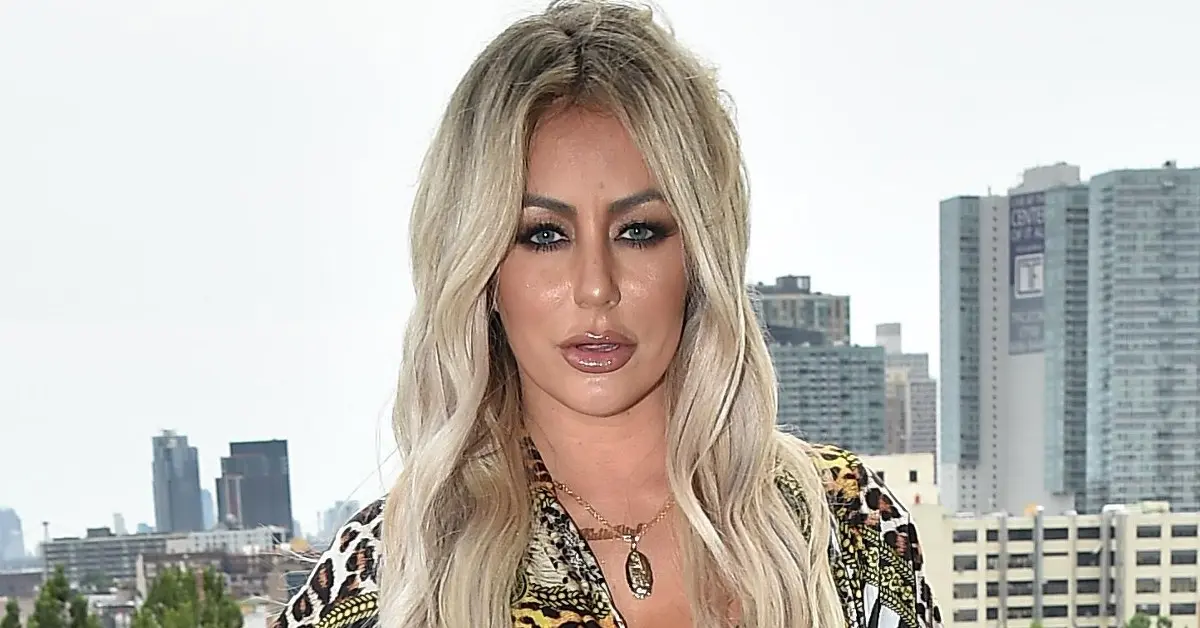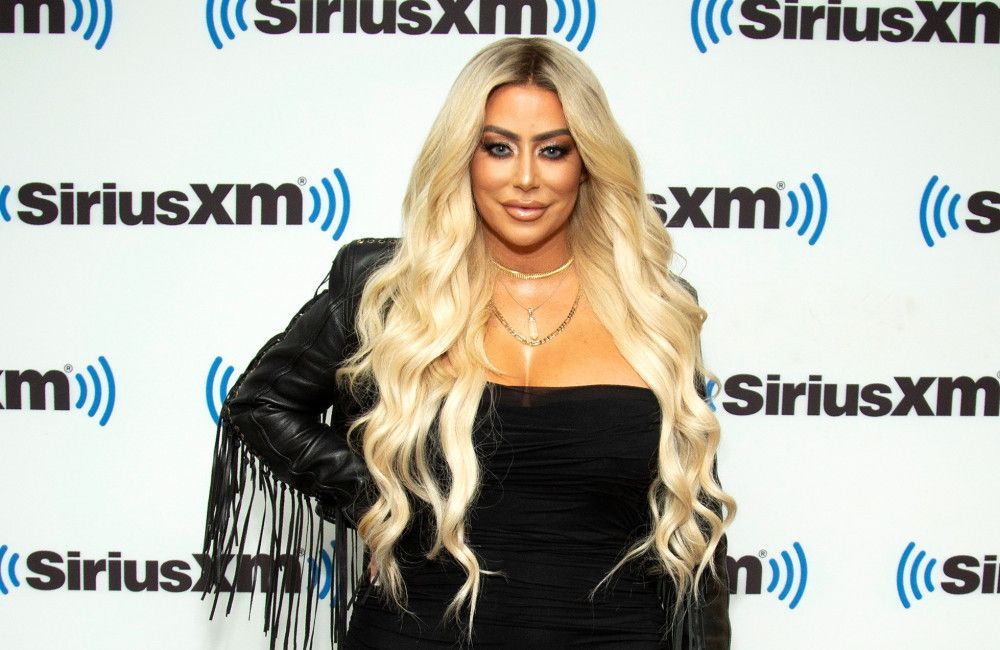Table of Contents
Aubrey O’Day Denies Involvement in Diddy Trial Despite Rumors
Ex-Danity Kane group singer Aubrey O’Day has now come out publicly that she would not attend the Sean “Diddy” Combs’ ongoing trial as a witness, even if so many media outlets have been speculating about it. The former star made an appearance on a podcast led by T.J. Holmes and Amy Robach where she confronted the rumors that she had been subpoenaed to testify in New York court. O’Day stressed that her latest visit to New York was entirely personal. She also shared her Instagram posts to show that she had been traveling to New York just for fun and not for legal duties. While she admitted that she had the conversation with the Homeland Security people, she refused to speak out on what they had been talking about.
The given information has to do with an untrue reporting by Us Weekly and some other sources where it was stated that O’Day will testify in this case jointly with her former bandmate Dawn Richard. The public’s assumption about O’Day’s potential testimony stems from her well-documented turbulent relationship with Combs, who formed and managed Danity Kane. For years, O’Day has openly criticized the music mogul’s business practices and their professional fallout, making her a figure of interest in the trial.

Her past comments about Combs’ behavior and their contentious split created natural speculation she might provide damaging testimony. However, O’Day has chosen to keep her distance from the formal legal proceedings despite this history. The singer’s decision highlights how former associates must weigh personal grievances against the potential consequences of courtroom involvement. While maintaining her critical perspective through media appearances, Aubrey O’Day appears to have drawn a line at direct legal confrontation, showcasing the complex calculations public figures make when their personal histories intersect with high-profile cases.
Trial Progresses With Key Testimonies
As O’Day bows out of the witness list, attention shifts to other participants in the landmark case that has already featured dramatic testimony. Cassie Ventura and Dawn Richard’s appearances set a precedent for intimate accounts of Combs’ alleged misconduct, raising anticipation about who might testify next. Legal experts suggest prosecutors may call additional music industry insiders to establish patterns of behavior. The trial’s unfolding narrative continues to captivate the entertainment world, with each revelation potentially impacting Combs’ legacy and business empire. Observers note the proceedings could influence broader conversations about accountability in the music industry, regardless of O’Day’s non-participation. With Homeland Security involved, the case has expanded beyond civil allegations into potential criminal territory, increasing its significance and the stakes for all involved parties as testimony continues.
The rapid spread and correction of Aubrey O’Day alleged involvement underscores how quickly misinformation circulates in high-profile legal cases. Initial reports from reputable outlets like Us Weekly demonstrate how even established media can misinterpret legal developments involving celebrities. O’Day’s proactive approach to setting the record straight via podcast and social media reflects how public figures must actively manage their narratives during such situations. This incident serves as a case study in the challenges of accurate legal reporting when celebrity reputations and public curiosity collide. The disparity between speculation and reality in Aubrey O’Day case raises questions about media responsibility when covering sensitive legal matters involving famous personalities, especially when their past relationships make them seem like natural witnesses regardless of actual involvement.
Explosive Testimonies Reveal Disturbing Details in Diddy Trial
The end of the trial was marked by the detailed testimony from the Homeland Security Agent Yasin Binda, who disclosed the September raid on Combs’ hotel room where, according to him, the law enforcement agencies found narcotics, lubricants, and baby oil. This evidence immensely strengthened the case of the claimant, potentially confirming the claims of other witnesses. The powerful testimony of former Danity Kane member Dawn Richard was especially impactful, in which she gave a detailed account of Combs’ abuse of Cassie Ventura. Her detailed account included the violent 2009 incident she witnessed.
Richard’s emotional statements carried extra credibility considering the fact that she was in the middle of a court case against Combs on charges of sexual abuse. The combination of law enforcement evidence and insider accounts created a comprehensive narrative that painted a troubling picture of the music mogul’s conduct, leaving a strong impression on the courtroom as the trial concluded. While not testifying, former Danity Kane member Aubrey O’Day’s longstanding public criticisms of Combs gained renewed relevance during the trial.
Industry observers noted how Aubrey O’Day had previously challenged Combs’ decision to return publishing rights to artists, characterizing it as a strategic move to secure loyalty before his legal troubles became public. Her years of outspoken commentary about Combs’ business practices and personal behavior provided valuable context about the power dynamics within Bad Boy Records. O’Day’s willingness to speak out years before the current allegations emerged demonstrated remarkable foresight and offered important perspective on Combs’ relationships with the artists under his management. These past criticisms resurfaced during the trial, adding depth to the public understanding of Combs’ professional conduct and interpersonal relationships.
Unanswered Questions Remain as Trial Concludes
Even though the witnesses seem convincing, the district attorney announced that at least one of the witnesses would likely avoid testifying as planned, thus creating doubts about the case. Experts in the legal field started making assumptions on several possible explanations for the scenario, ranging from witness intimidation up to evidentiary issues or strategic calls. The absence of certain anticipated testimonies created gaps in the narrative that may never be filled, even as the trial reached its conclusion. This uncertainty extended to broader questions about how many others might have similar experiences with Combs but chose not to come forward.
As the proceedings wrapped up, these unanswered questions continued to fuel discussions about the full extent of misconduct in the entertainment industry and the challenges of achieving complete justice in such complex cases. The end of the legal proceedings does not only signify Combs’ future but also the future of the music industry in general, where intricate changes are to be expected. The concrete depositions have found at least a few of the mogul’s partners ditching him and considering that others might be encouraged to come forward with their experiences.
The lawsuit has fueled the ongoing discussion about abuse of power, the rights of the artists and entertainment’s accountability, which are all similar to Hollywood’s #MeToo movement. The trade sector is now compelled to meet the stiff demands to put into practice some meaningful reforms through additional personnel who can shield the artists and employees. Even though stakeholders digest the outcomes of the trial, it is still only logical that the final effect of the trial did not only get Combs into trouble legally but it went beyond that in changing the system and thereby creating a positive and fair work environment in the music business for years.




